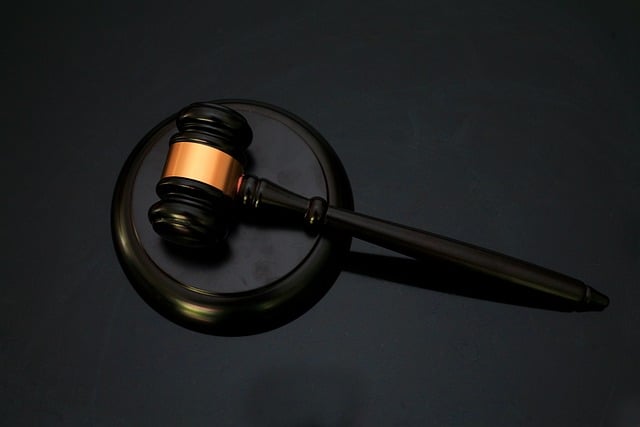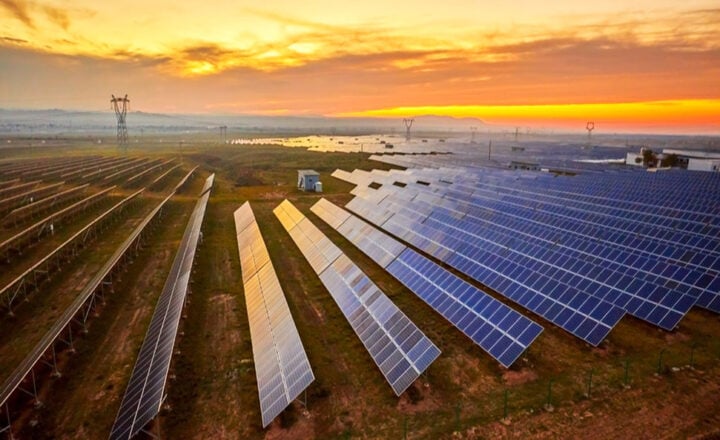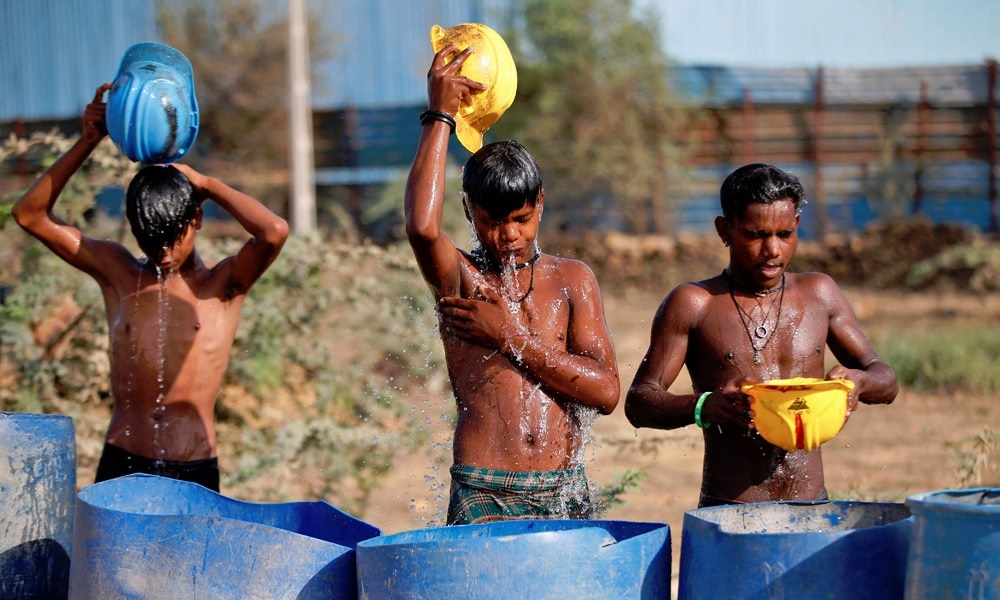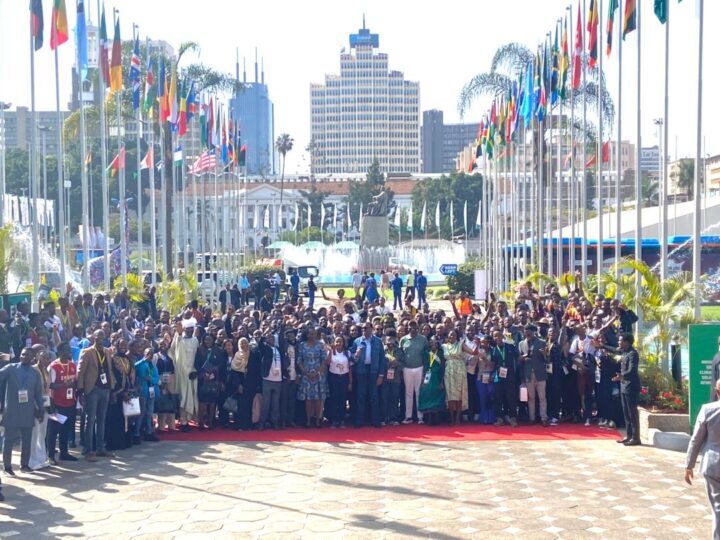With over 50 natural beaches in Nigeria serving as relaxation spots for thousands, and habitat for many plants and animals, it is important that we take care of our beaches to preserve the ecosystem.
In this interview to mark World Beach Day, Chimamaka Anakwuo-Nwosu, a sustainability expert, spoke with TheCable’s JANEFRANCES CHIBUNDU on the need to reduce plastic waste in our local beaches.
TheCable: Tell us about your organisation and its mission in relation to beach clean-ups.
Anakwuo-Nwosu: Our mission is more of helping to preserve the coastal ecosystem. Through this effort, we aim to remove plastic and other pollutants from the source. In doing this, we are ensuring the well-being of marine life and maintaining the natural beauty of our beaches. Not only that, we are also inspiring global action by organising impactful beach clean-up initiatives.
Advertisement
We also seek to inspire individuals worldwide to take action in their own communities, fostering a global movement towards cleaner and healthier oceans. So, if one person starts, and another person sees him, they will know how important it is to do this. It will spur other people to do the same. That is how we can achieve this impact we are talking about.
It is also an opportunity for people to take direct action to protect our beaches. In doing so, you are instilling a sense of environmental responsibility that extends beyond the shorelines. So, it is not only the beach. It means that wherever it is, you are taking environmental responsibility.
TheCable: What inspired you to become involved in beach clean-ups? Why is it so important?
Advertisement

Anakwuo-Nwosu: One of the reasons is learning about the global scale of plastic pollution, and the detrimental effects it has on marine life, fish and the rest. Most times, when you go to the beach, you find out that most of the litter is more of plastics, even bottles, and these things if not taken care of find their way into the oceans. It made me realise that even local actions, the least you can do can have a meaningful impact on larger problems, and so participating in beach cleanups empowers me to be part of the solution that transcends borders.
There is this saying that think globally and act locally. It means when individual efforts are multiplied across communities, they can collectively make a significant contribution to solving a worldwide issue. I’m not even the only one involved. There are a lot of people doing this. If we continue working on this path, it will go ahead to make impacts more.
Beach clean-ups offer you a unique opportunity to contribute positively to your surroundings. It serves as an educational platform where you can spread awareness of the harmful consequences of plastic pollution and foster a sense of community and continuity.
The last time we had the beach clean-up, people wondered what we were up to. Why are these people doing this? At that point, we informed them why we were doing it. So, that is why it is also an educational platform.
Advertisement
TheCable: How do clean-ups contribute to preserving the natural beauty and ecological balance of beaches?
Anakwuo-Nwosu: The removal of debris and pollutants from the shoreline helps restore the beauty of the beaches, making them more attractive for visitors and boosting economic value. You wouldn’t want to go to a beach that is always littered, but you would prefer a neat beach. We remove litter such as plastic fragments, and fishing gear that pose serious threats to marine systems. Coastal animals can ingest these items and it will lead to internal injuries or death.
So, beach clean-ups will help to reduce the likelihood of interactions of wildlife with harmful litter or debris. Also, it helps to mitigate plastic pollution from breaking down into smaller particles — microplastics that can enter the food chain and have widespread ecological impact.
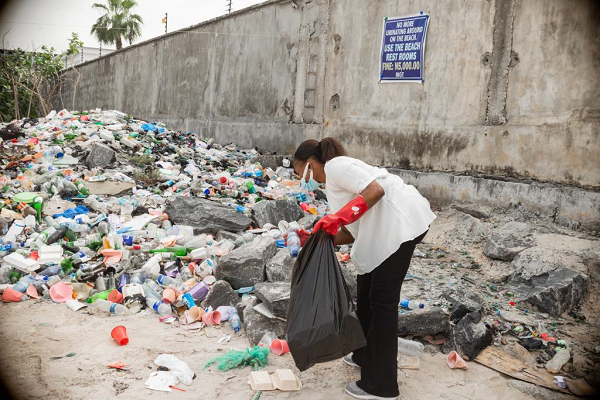
TheCable: Can you share any memorable moments or success stories from your clean-up initiatives?
Advertisement
Anakwuo-Nwosu: The last time we had a beach clean-up, someone from a particular company who saw us asked questions about why we were doing that. Then, we were able to sensitise that person on what we were doing, and I later found out that the person went ahead to do the same for her company. Imagine, if we had not done such, that person wouldn’t have seen us and then tried to emulate the same for their own company. That for me was a memorable moment of impacting a life.
TheCable: In your experience, what are some of the biggest challenges faced during the clean-ups, and how do you overcome them?
Advertisement
Anakwuo-Nwosu: The amount of pollution we met at the beach the last time we went was so much that the number of people who came with me was not enough. The amount of pollution sometimes can be overwhelming. Dealing with large quantities of trash takes a lot of time, effort and coordination.
Also, access to transportation and safety concerns can be a challenge too, because certain types of litter such as broken glasses can pose a challenge to the volunteers. So, what I did was to also ensure that we had reusable gloves to protect our hands from any form of hazardous materials.
Advertisement
Also, on volunteer engagement, it is not easy getting people to volunteer for beach clean-ups. It takes a lot of talking, to convince them why they should do this. Proper disposal of the trash bin can pose a challenge too — except you are able to get a waste management facility that is readily available to handle the types of waste you collect. Issues around the beach management approval sometimes can add to the complexities of organising a beach clean-up.
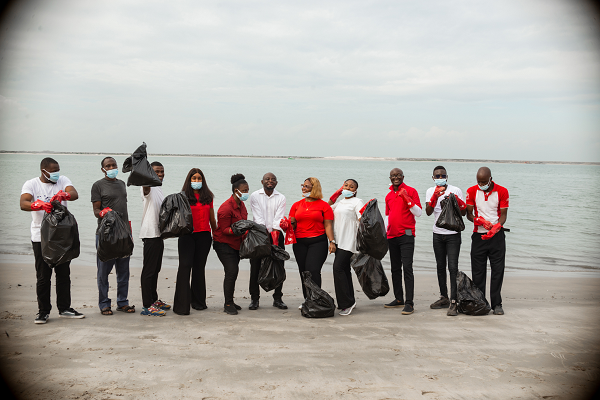
TheCable: How did you ensure that what was collected during the clean-up was properly disposed of or recycled?
Advertisement
Anakwuo-Nwosu: First, I deploy pre-separation of waste by providing different bins for different types of litter to make it easier to sort and recycle. With the help of a recycling company in Lagos, which we have a partnership with, we transport the wastes to the collection points after the separation of the plastics where they were picked. I am relaxed knowing that the litter will be recycled properly. So, it is not a case of getting trash just for it to be trashed somewhere else.
I also encourage the company to bring their recycling materials to the office so that we can help them recycle properly. This is just different from the ones we get from the beach and the rest. So, with that, we have been able to reduce carbon emissions. My advice to individuals or communities who are interested in beach clean-up is to speak to the management about it and the reason why it is important that your organisation gets on board with this initiative, to show that your organisation is well concerned about environmental sustainability. So, when your management is on board with it, you have to get an educational training staff and also get materials like gloves. Then after the clean-up, you can have a sit-out just to make it fun.
TheCable: What message would you like to convey to individuals around the world about the importance of taking care of our beaches and oceans?
Anakwuo-Nwosu: Let us all remember that beaches are not just beautiful destinations for relaxation and recreation. They are also essential ecosystems that provide sustainability benefits to our planet, and also to its inhabitants. They play a vital role in regulating our climate, supporting biodiversity and providing livelihood for communities.
The environment is facing threats as a result of plastic pollution, habitat destruction, and climate change. The very things that make our beaches so appealing are at risk of being lost if we do not take action now. I believe that every individual has the power to make a difference by making simple changes in our daily lives, such as reducing our plastic consumption, properly disposing of waste, participating in beach clean-ups, and supporting sustainable practices. We can collectively safeguard our beaches and oceans and also our future generations.
On World Beach Day, let us raise our voices for cleaner beaches, healthier ecosystems and a more sustainable future together. We can ensure the beauty of our beaches and also remember that the actions we take today will shape what tomorrow will be like.
Add a comment

